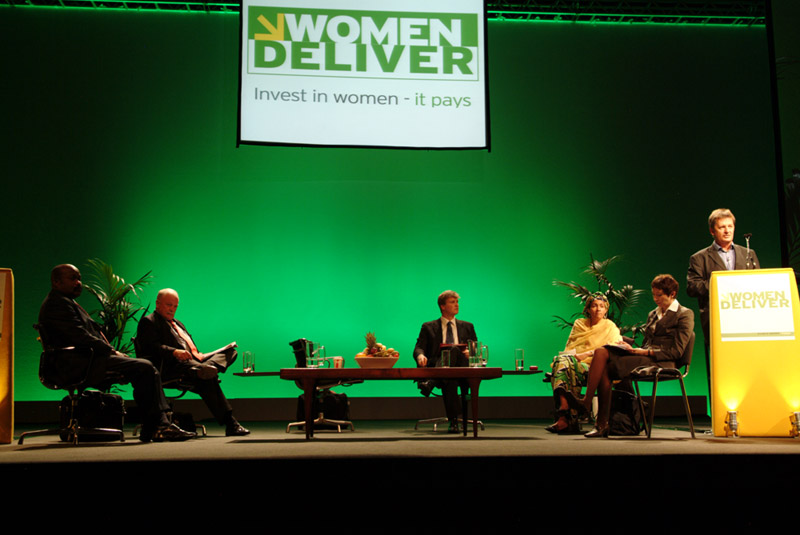2007 Conference
In October 2007, a gathering of nearly 2,000 advocates, researchers, policy makers, and global leaders from 115 countries put the world on notice that the deaths of more than 500,000 women each year in pregnancy and childbirth will no longer be tolerated. The Women Deliver conference, held in London to mark the 20th anniversary of the Safe Motherhood Initiative, brought new ammunition to the case for investing in maternal and newborn health.
It successfully demonstrated that maternal and newborn health is key to the economic growth and the social fabric of developing nations. Participants shared two decades of lessons learned in five critical areas:

- Improving Women’s and Newborn Health – maternal health, newborn health, family planning, comprehensive reproductive health, unsafe abortion, HIV and AIDS, sexuality education
- Promoting Women in the World – girls’ education, women and work, leadership development
- Expanding Financial Resources – donor aid, health system reform, corporate commitment, private money
- Advancing Human Rights – women’s rights, gender equality, poverty reduction, freedom from violence
- Building Political Will – advocacy, communications, high-level political leadership, youth leadership
The Women Deliver conference shared lessons learned and intensified efforts to meet the Millennium Development Goals (MDGs), with MDG5, improving maternal health, at the center. The conference cemented the core strategies for improving maternal health, and reframed maternal health as a basic human right and an integral strategy for achieving just development, reducing poverty, and ensuring environmental sustainability.
WOMEN DELIVER 2007: QUICK FACTS
Did You Know…
- There were over 2,000 participants from 115 countries.
- Participants included more than 100 government officials from more than 30 countries.
- 40% of the participants were men.
- The conference program included over 300 speakers inspiring dialogue and debate in 118 separate sessions over 3 days.
- The Ministers’ Forum brought together cabinet ministers, parliamentarians and civil society leaders from over 30 countries to shine a high-level policy spotlight on maternal and newborn health.
- The conference held 6 special plenary sessions during which no other sessions ran.
- There were 12 skills-building, strategy, and networking sessions on the last day that enabled participants to develop plans for future action.
- 17 launches of new campaigns, data, and publications in the Speakers’ Corner.
- 75 simultaneous sessions focused on the five conference themes of Women’s and Newborn Health, Promoting Women in the World, Expanding Financial Resources, Advancing Human Rights, and Building Political Will.
- All panels on youth issues featured young speakers.